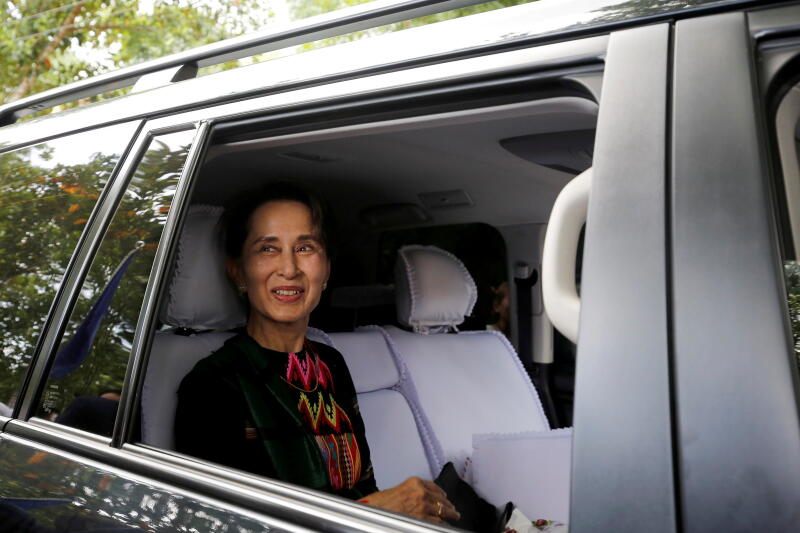Aung San Suu Kyi in line to get Covid-19 vaccine early as Myanmar readies roll-out
Sign up now: Get insights on Asia's fast-moving developments

Myanmar's de facto leader Aung San Suu Kyi will be among the first to receive Covid-19 vaccine in the country alongside health workers.
PHOTO: REUTERS
Follow topic:
NAYPYITAW (BLOOMBERG) - Myanmar's de facto leader, Ms Aung San Suu Kyi, alongside health workers, will be among the first to receive Covid-19 vaccine this week as the South-east Asian nation seeks to stem the coronavirus outbreak and further relax containment measures.
Front-line healthcare workers will get the shots from Wednesday (Jan 27), according to Dr Khin Khin Gyi, director of emerging infectious disease at Myanmar's Ministry of Health and Sports.
Ms Suu Kyi, President Win Myint and Cabinet members will be inoculated the following day in capital Naypyitaw.
Myanmar, which received 1.5 million doses of vaccine from India last week, will expand the inoculation programme to those older than 65 years in 74 townships under stay-at-home orders once healthcare workers are covered, Dr Khin Khin Gyi said.
Myanmar's stay-at-home orders have covered more than one-quarter of its population of almost 55 million from early September to control a second wave of infections that has seen the nation's total caseload surge to 137,574 with more than 3,000 fatalities.
A vaccine roll-out may allow the authorities to further ease restrictions in areas that include commercial hub Yangon and in Rakhine state.
Myanmar has signed a contract with Serum Institute of India to buy 30 million doses of the Covishield vaccine developed by AstraZeneca and Oxford University and is in talks with Chinese manufacturers including Sinovac Biotech and Sinopharm for additional supplies.
The nation aims to inoculate more than 40 per cent of its population by the end of this year, according to the Health Ministry.
Ms Suu Kyi's administration also expects supplies from the global Covax facility before April 7 and the government plans to allow the private sector to import vaccines approved by the World Health Organisation later this year, Dr Khin Khin Gyi said.
Over the past week, cases in Myanmar have declined to an average of less than 500 per day, from about 1,300 last month, allowing authorities to ease some of the curbs.
Yet, the International Monetary Fund warned the country against easing the virus restrictions too quickly, saying some restrictions need to be still maintained to prevent the outbreak from worsening.

